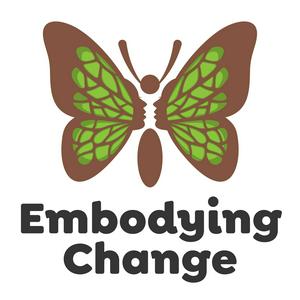59. Humanitarians' anchor in the storm: The power of structured peer support with Carrie Santos
In a sector increasingly battered by funding cuts, program disruptions, and global uncertainty, where can humanitarian professionals find stability? As the waves of change crash around us, what can serve as our anchor?In this powerful episode, Melissa Pitotti talks with Carrie Santos about how structured peer support groups (also called masterminds or forums) can provide that crucial foundation during turbulent times. They explore how these intentional communities help humanitarians weather career transitions, prevent burnout, and find creative solutions to complex problems when traditional support systems falter.Carrie shares her fascinating journey from working in a donor role to leading overseas programs for the American Red Cross, and then unexpectedly pivoting to run a global organization for entrepreneurs. There, she discovered the profound impact of structured peer support: an approach that successful business leaders have invested in for decades as their hidden compass during times of uncertainty.You'll hear how this powerful practice serves as an anchor for people across industries and cultures, transforming not just their careers, but their marriages, parenting, and overall well-being during life's storms. As Carrie notes, "It's been a great source of mental strength for me... If you want to live in a community where people listen to each other, support each other, and help you when you're stuck–if you want to live in that world, you can create it."If you're feeling adrift amid funding cuts, searching for your next opportunity, or simply wanting to connect with people who understand your unique challenges, this episode reveals how the right peer support network could be the anchor you need to remain steady, purposeful, and persevering.Today's GuestCarrie SantosWith 20 years' experience as an international humanitarian, Carrie has led overseas operations for the American Red Cross and served as a U.S. government donor to local and international organizations. As CEO of Entrepreneurs' Organization, with 16,000+ members globally, she led a network of purpose-driven entrepreneurs seeking to do good while making a profit; including 1,500+ peer support groups. Now she serves as a consultant, helping to build strategic plans for nonprofit and for-profit organizations that are aligned with her purpose of solving the world's problems by ensuring everyone can contribute their talents.You'll LearnWhat makes a high-value mastermind your anchor during professional storms when casual networking falls shortThe intentional structure that makes these groups so effective at providing stability when everything else feels uncertainHow to effectively run a "hot seat" (or "love seat") to get targeted feedback on your challenges when you feel most adriftHow the exchange of real-world experiences in a peer group creates insights that even well-meaning friends can't provideHow to find or create the your own mastermind group to weather today's humanitarian challengesConnect with Carrie onLinkedIn: Carrie Santos Her website: Timko Santos Consulting, LLC: Workshops that WorkAsk her how to join the cohort of DC-based and otherwise located senior female humanitarian and development leaders affected by foreign aid cuts.ResourcesFor Melissa Pitotti’s quick-start guide on how to start your own peer support group email
[email protected] Roman Terekhin's research on peer support groups: https://onlinelibrary.wiley.com/doi/10.1002/job.2845.Ahad Ghadimi's "Forums at Work" approach for implementing peer support in organizations: https://forumsatwork.com/ and his book, Turnaround ArtistsThe Center for Leadership led by Prof. Cezary Wojcik based in Poland: https://center-for-leadership.org/Key Quote"...It's been a great source of mental strength for me... If you want to live in a community where people listen to each other, people support each other, people cheer you on, and people help you when you're stuck… If you want to live in that world, you can create it." - Carrie Santos

